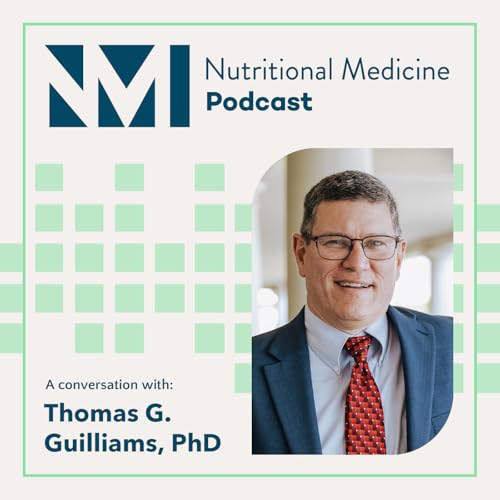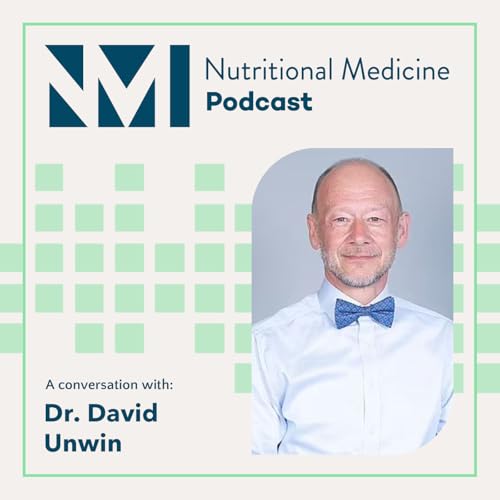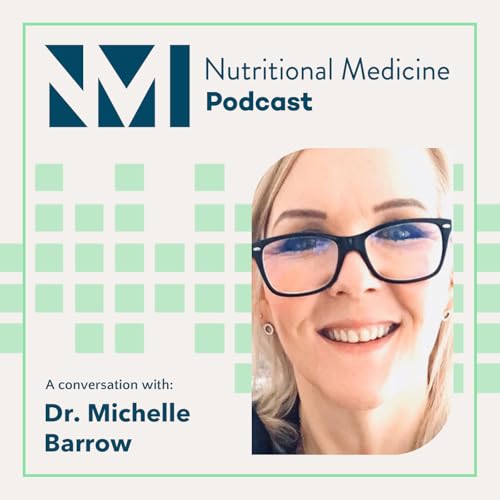Phytonutrients have been called the ‘dark matter’ of nutrition, a significant but often uncharacterised and poorly understood class of nutrients that have a profound impact on human health. In this remarkable interview, Dr. Deanna Minich dives into her specialist area, the relationship between phytonutrients, health and wellbeing. She discusses new research that is changing the way we think about plant foods, controversies such as diets that restrict plants, and weaves in several practical clinical takeaways that bridge the connections between food, biology, behaviour, environment, and spirit.
Guest:
Dr. Deanna Minich, MS, PhD, CNS
About our guest:
Deanna Minich, MS, PhD, CNS, Certified Functional Medicine Practitioner (IFMCP), is a nutrition scientist, international lecturer, teacher, and author, with over twenty years of experience in academia and in the food and dietary supplement industries.
Throughout the years, she has been active as a functional medicine clinician in clinical trials and in her own practice (Food & Spirit™), which has now become oriented towards groups, workshops, and retreats. She is the author of seven consumer books on wellness topics, four book chapters, and over fifty scientific publications. Her academic background is in nutrition science, including a Master of Science (M.S.) degree in Human Nutrition and Dietetics from the University of Illinois at Chicago (1995) and a Doctorate (Ph.D.) in Medical Sciences (nutrition focus) from the University of Groningen in the Netherlands (1999). For a decade, she was part of the research team led by the “father of Functional Medicine,” Dr. Jeffrey Bland, and has served on the Nutrition Advisory Board for The Institute of Functional Medicine, as well as on the Board of Directors for the American Nutrition Association. Since 2013, she has been part of the faculty for the Advanced Practice Module in Environmental Health offered by the Institute for Functional Medicine and has been teaching a graduate level course in metabolic detoxification at the University of Western States. Over the decades, she has taught thousands of nutrition classes for health coaches, fitness trainers, and healthcare professionals, including for programs offered by the Functional Medicine Coaching Academy, the Integrative and Functional Nutrition Academy, and the Institute for Integrative Nutrition. In conjunction with her academic degrees and extensive teaching experience at the university level, she is both a Fellow (FACN) and a Certified Nutrition Specialist (CNS) through the American College of Nutrition. She is Chief Science Officer at Symphony Natural Health, where she leads the medical advisory team, oversees scientific communication, and provide educational leadership for the company’s plant-derived nutraceuticals. She is passionate about helping others to live well using therapeutic lifestyle changes that impact their physical, emotional, mental, and spiritual health.
Guest websites and links:
https://www.foodandspirit.com
Selection of our guest’s publications:
- Minich DM. A Review of the Science of Colorful, Plant-Based Food and Practical Strategies for "Eating the Rainbow". J Nutr Metab. 2019 Jun 2;2019:2125070.
- Petroski W, Minich DM. Is There Such a Thing as "Anti-Nutrients"? A Narrative Review of Perceived Problematic Plant Compounds. Nutrients. 2020 Sep 24;12(10):2929.
- Minich DM, Brown BI. A Review of Dietary (Phyto)Nutrients for Glutathione Support. Nutrients. 2019 Sep 3;11(9):2073.
- Bush CL, Blumberg JB, El-Sohemy A, Minich DM, Ordovás JM, Reed DG, Behm VAY. Toward the Definition of Personalized Nutrition: A Proposal by The American Nutrition Association. J Am Coll Nutr. 2020 Jan;39(1):5-15.
 1 時間 1 分
1 時間 1 分 1 時間 2 分
1 時間 2 分 54 分
54 分 49 分
49 分 1 時間 1 分
1 時間 1 分 43 分
43 分 2025/06/131 時間 2 分
2025/06/131 時間 2 分 1 時間 1 分
1 時間 1 分
